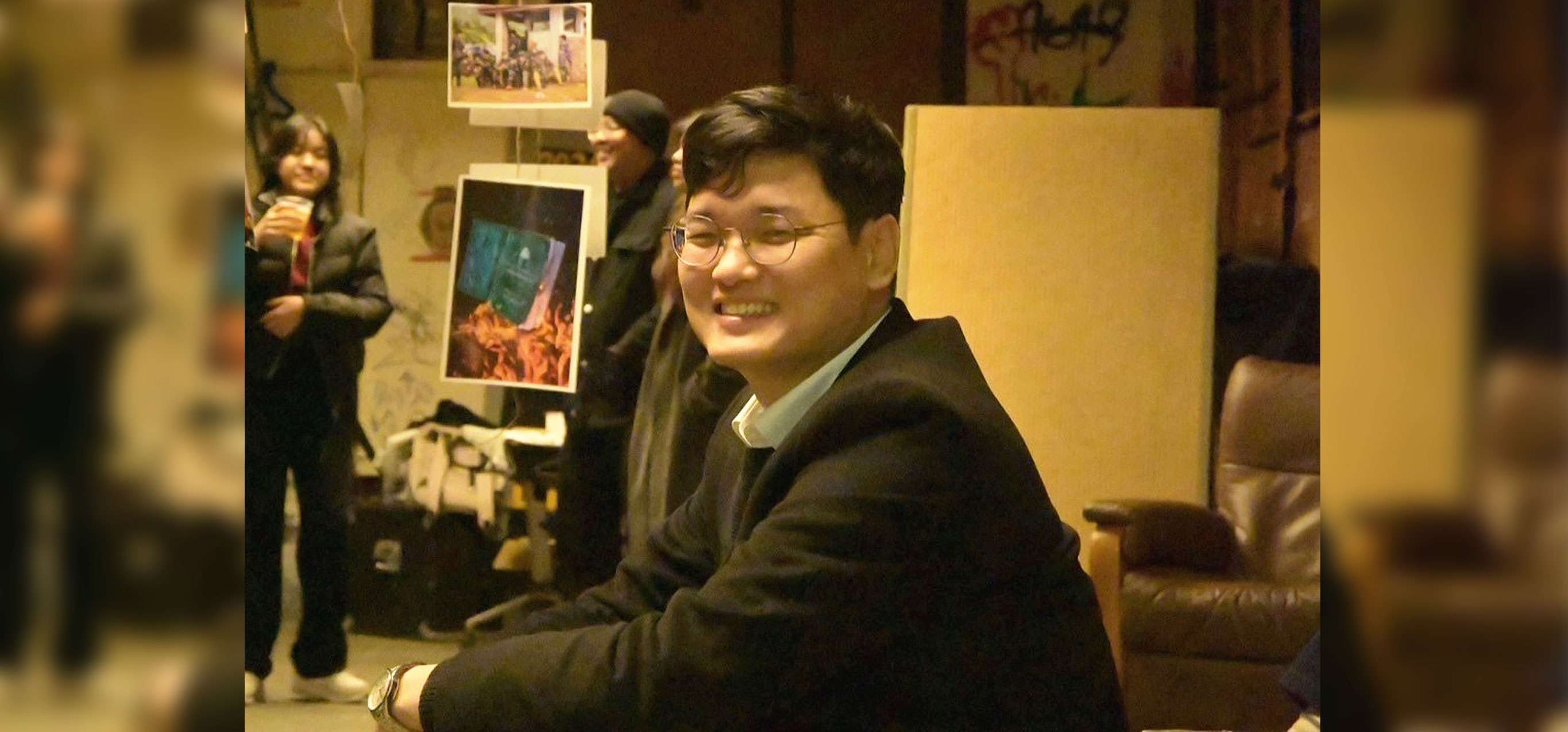
Studying international relations in English while also having the opportunity to learn Japanese in Kyoto provided the perfect environment for me.
CHA Mok Won
Fourth-year Global Studies Major / International Student from Korea
We interviewed Mr. CHA Mok Won about his studies on campus and his various activities in Kyoto.
What attracted you to apply from South Korea to the College of International Relations at Ritsumeikan University, and what motivated you to study Global Studies?
Mok WonWhen I decided to study abroad, I explored many universities in different countries. Ritsumeikan University attracted me because it offers an English-taught program in a multicultural environment in Japan. I was impressed by the diversity of the faculty members, who come from various countries and academic backgrounds. Another important point was that, even without Japanese proficiency, I could still study in Japan while taking advantage of the university’s Japanese language courses to learn the language.
I also considered Japan’s cultural and geographical closeness to Korea. This made it easier for me to visit my family and friends, and I felt that Japan’s culture would be more familiar and less difficult to adapt to compared with other countries. Since I was born and raised in Korea, I had some concerns about adjusting to a completely different culture, but I believed Japanese culture would fit better with my background and help reduce homesickness.
Finally, among other English-taught programs, the College of International Relations at Ritsumeikan stood out for its prestige and variety of opportunities, such as the Global Studies major, a wide range of classes, and a highly international student community. To be honest, at first I thought some of these might just be promotional phrases, but now I realize the reality has exceeded my expectations.
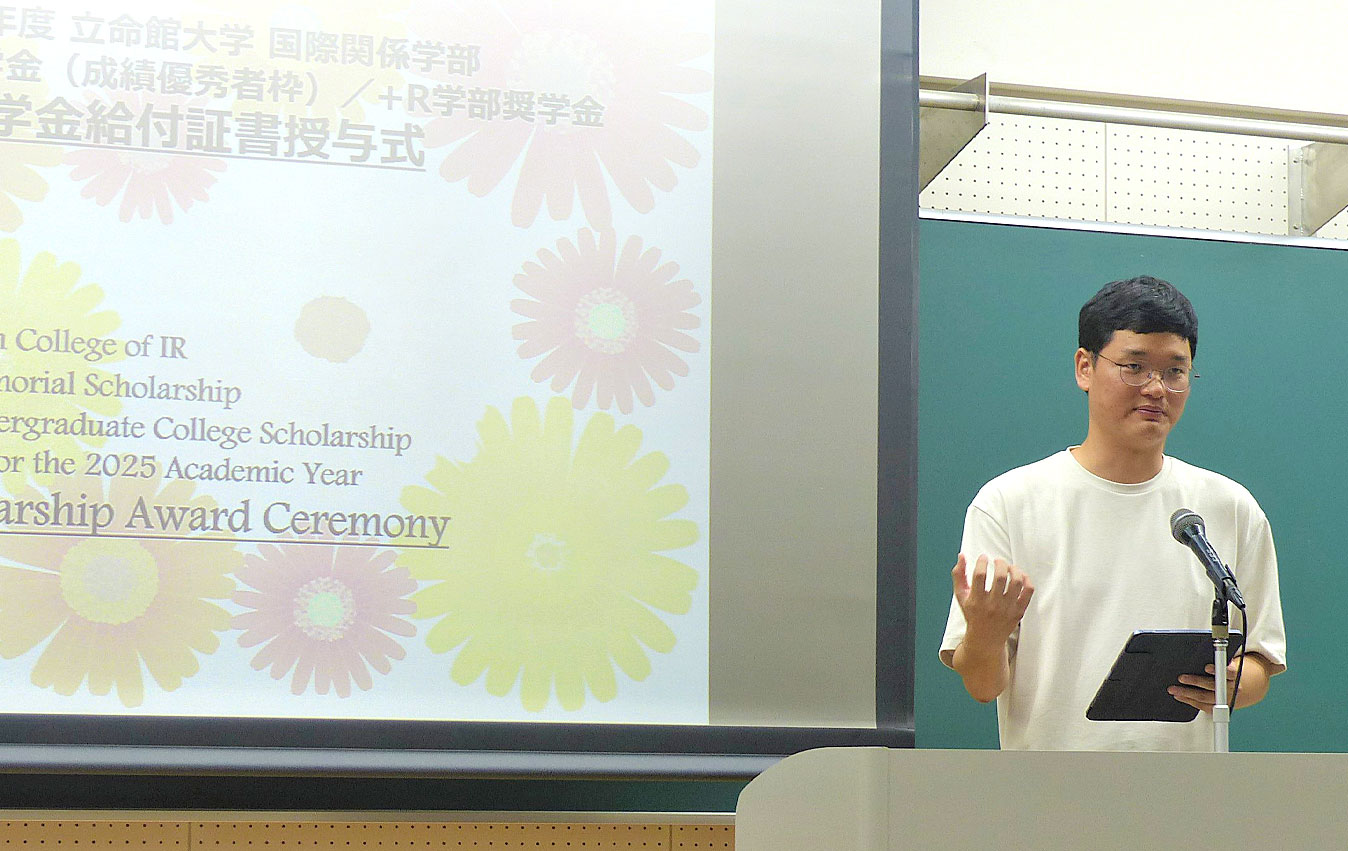
We have heard that you have made an effort for your study, and recently you were awarded the Saionji scholarship. How do you usually manage your time and stay motivated in a multicultural environment like Ritsumeikan?
Mok WonThanks to tuition reduction and the Saionji scholarship, I do not need to rely heavily on part-time jobs, which allows me to focus more on my studies. I even consider studying as another form of part-time job, since my academic effort can lead to scholarships. This financial support not only reduced pressure but also gave me recognition that will be valuable when I apply for graduate schools or jobs in the future.
Another important source of motivation comes from my peers. At the Saionji scholarship ceremony, I met a friend whom I had known before. Beyond that, I am surrounded by many outstanding students at Ritsumeikan. In fact, some of them did not receive the scholarship even though I feel they are equally deserving. Being friends with such people motivates me a lot—we often talk about classes, share ideas for papers, and support each other. When your peers study hard, it is difficult not to be inspired.
As for time management, I try to plan my semester carefully by reading syllabuses in advance. Since each course has a different emphasis—some rely heavily on final papers, others on presentations or weekly assignments—I balance my schedule so that the workload is spread more evenly. This way, even during the final period, I can stay organized and manage my time more effectively.
Please share your most fulfilling activity or most unforgettable experience while at Ritsumeikan University.
Mok WonOne of my most memorable activities at Ritsumeikan University was working with Professor Wachutka on a grassroots event sponsored by the university, which focused on multi-ethnic communities in Japan. I joined as both a student supporter and a presenter.
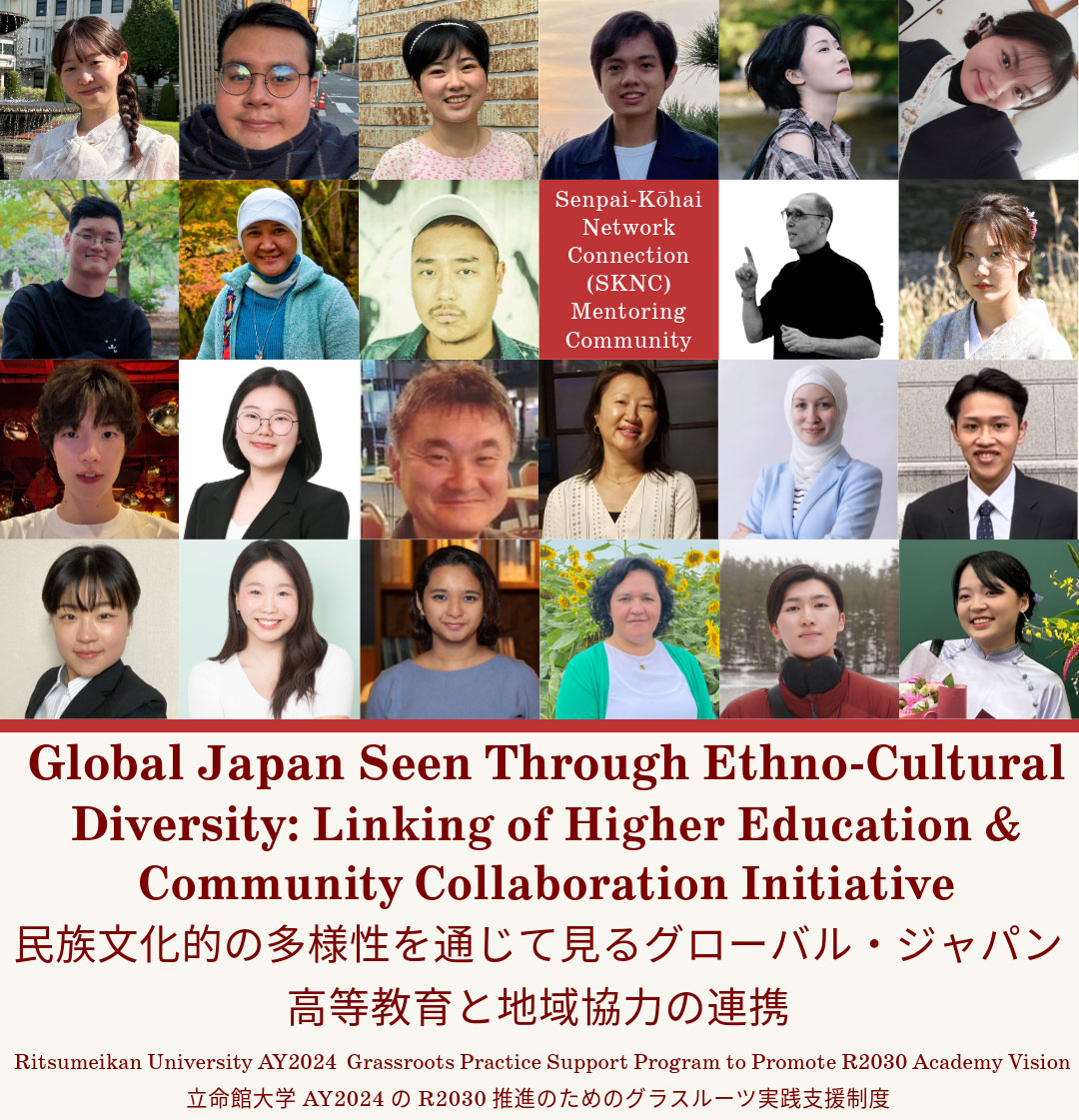
Mok WonUntil then, I believed my environment at Ritsumeikan was multicultural, since I was surrounded by students from various countries and backgrounds. However, through this event, I realized that my perspective was still somewhat narrow. My understanding of multiculturalism had been limited mostly to university students, but in reality, Japanese society includes far more diverse communities. Even within the Korean community, there are many different identities. For example, I had unconsciously used the term 在日韓国人 (Zainichi Kankokujin), which refers only to South Korea–affiliated people. But through the event, I met a poet with “Chōsen” nationality, who did not identify with either North or South Korea. This experience made me aware that Zainichi Koreans exist along a wide spectrum of identities, and it challenged me to broaden my own assumptions.
I still continue to work on projects with Professor Wachutka, and these opportunities not only deepen my academic learning but also allow me to better embody the spirit of Ritsumeikan and the College of International Relations.
What has been your favorite place on or off campus that helped you relax, think, or feel inspired? Why that place?
Mok WonI think Kyoto itself is a wonderful place to relax. Since I was in Korea, I have always enjoyed visiting cafés. The cafés in Kyoto are different from those in Korea, but they have their own unique charm. I often spend time in them, especially around the Kinugasa area, which is surrounded by mountains and has a clean and peaceful atmosphere.
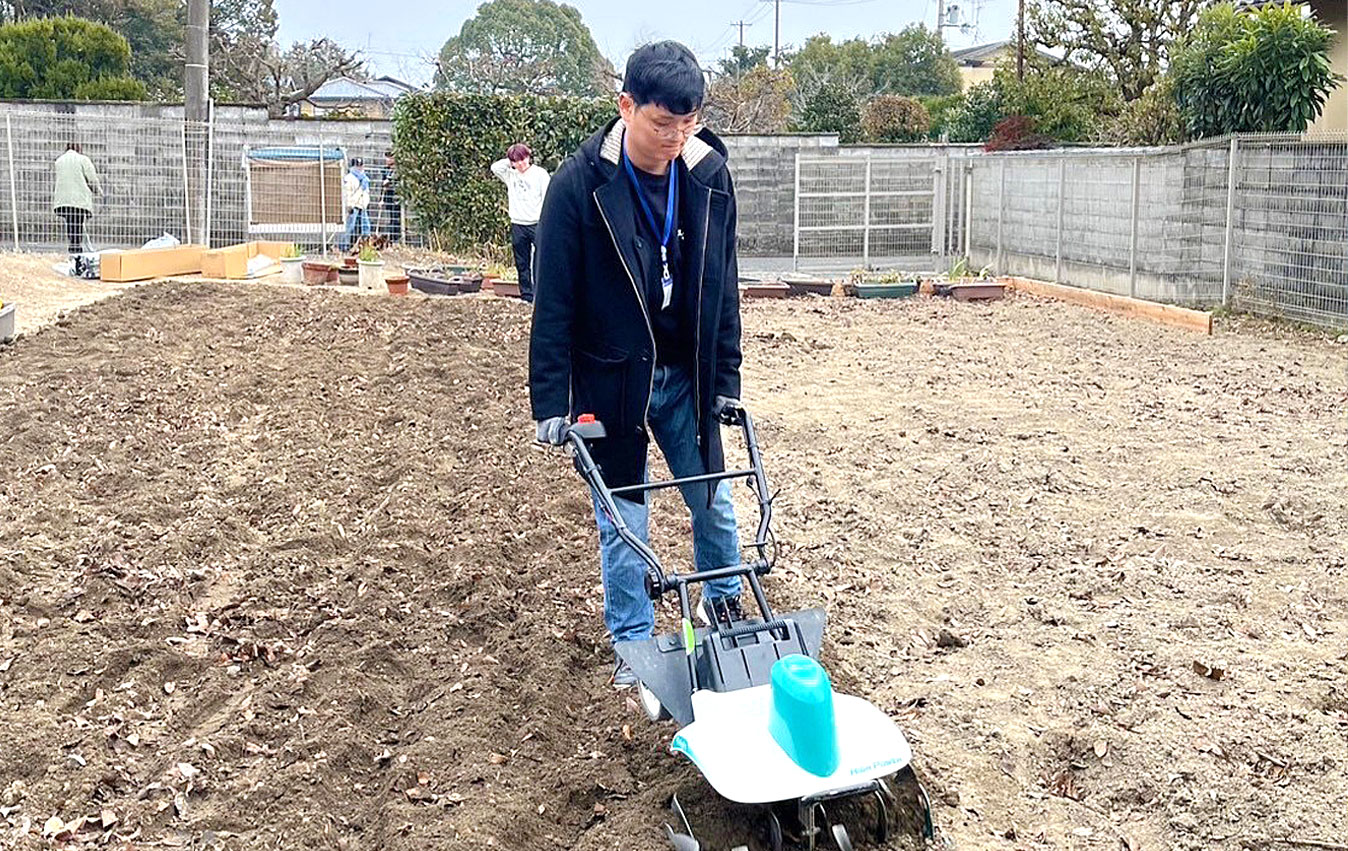
What inspires me most, however, are the people. I am a member of Kreis(クライス), a farming club at Ritsumeikan that includes not only students but also local residents. Through the club, I have the chance to interact with older community members and sometimes even children, which gives me a sense of belonging. I also enjoy visiting local restaurants, such as Okonomiyaki Katsu(克), where I often chat with the owners, a kind couple who always welcome me warmly.
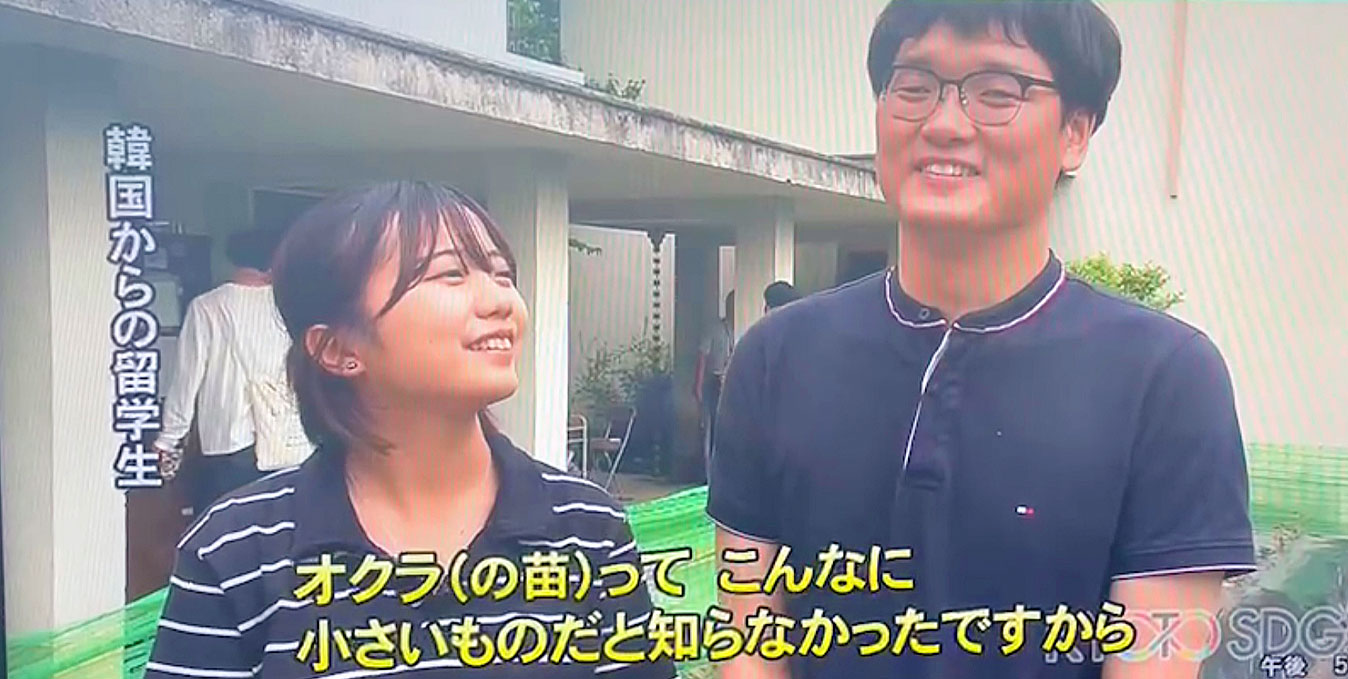
Even though I am an international student, these connections with local people and the familiarity I have built in the neighborhood make me feel like I am truly part of Kyoto. That feeling itself makes the place very relaxing and inspiring for me.
What are your plans after graduation? What made you pursue them?
Mok WonI am considering working while pursuing graduate studies at the same time. My original plan when I entered Ritsumeikan was to start working right after graduation. However, I achieved better grades than I expected, and several professors encouraged me to continue my studies. I was also inspired by many Ritsumeikan professors who have extensive practical experience in addition to their academic backgrounds. Unlike purely academic scholars, they bring different perspectives, and seeing their career paths made me realize that combining work and study could be a lifestyle that fits me well.
I have a strong desire to work, but at the same time, I believe I have the ability and motivation to continue studying. This might mean spending more years in graduate school, but I want to keep learning and growing. Thanks to my experiences at Ritsumeikan, I now feel confident that I have many options—I can stay in Japan, return to Korea, or even move to a third country. At the moment, I am exploring the best path for myself.
Could you send some messages to prospective students for the College of International Relations at Ritsumeikan University?
Mok WonWhen I first came to Ritsumeikan, I could not speak Japanese at all. What attracted me was that I could study in English while living in Japan, and at the same time take Japanese language courses. Step by step, I improved—and now I have grown enough to even work as an interpreter in part-time jobs. This transformation was something I never imagined when I applied.
I was also able to join events on multicultural communities in Japan and meet people with very diverse backgrounds, which broadened my perspective far beyond the campus. Combined with the support of professors and peers, these experiences gave me both confidence and inspiration.
To prospective students, I want to say: Ritsumeikan IR is not only a place to study international relations, but also a place where you can challenge yourself, discover new abilities, and reshape how you see the world. If you come with an open mind, you may find yourself growing in ways you cannot imagine now—just as I did.
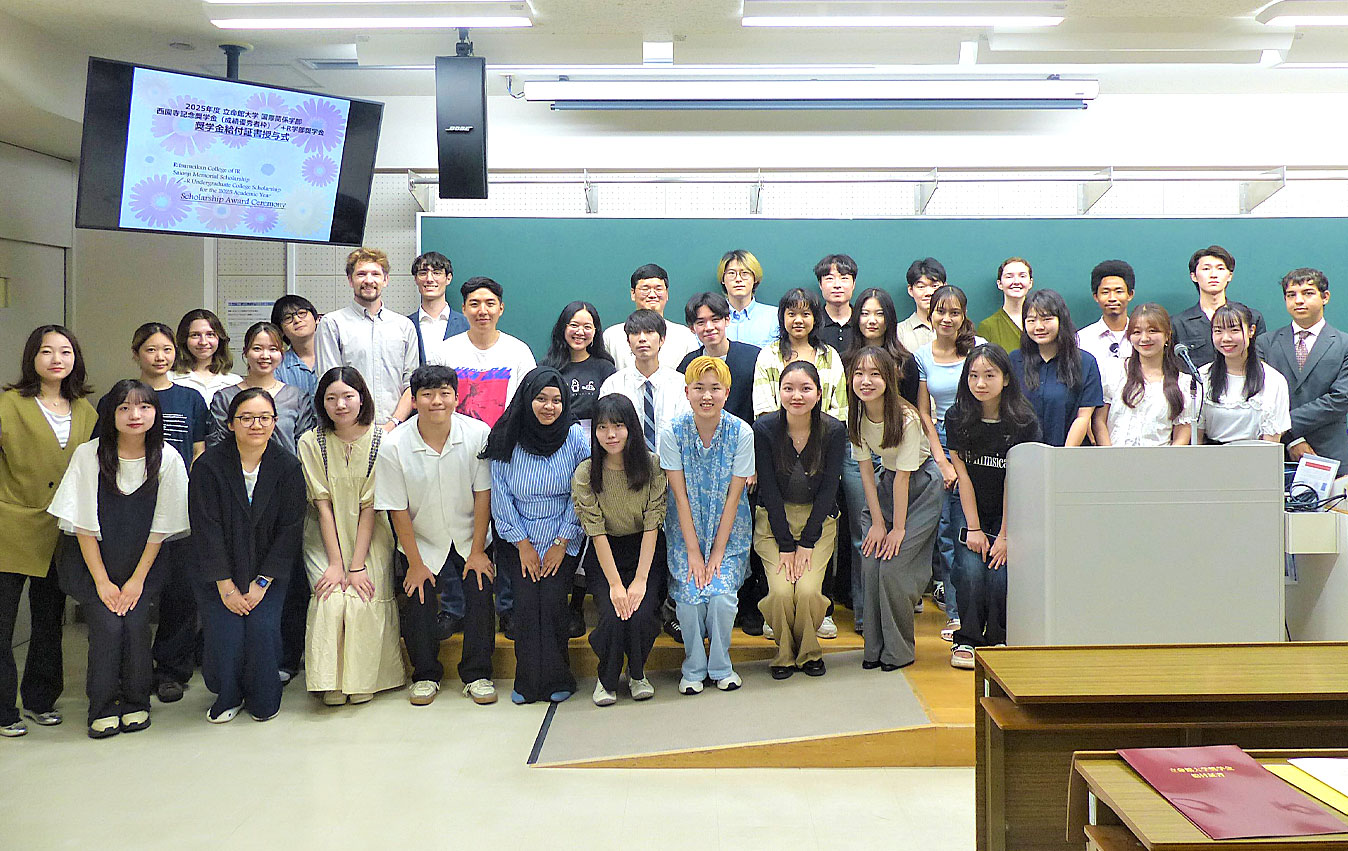
September 2025
MORE INTERVIEWS
-
International collaboration is not merely an ideal, but something that is both achievable and essential
Tran Duc Tuan (Steven)
Honda (Graduate School of International Relations Alumnus 2015)2026.2.13
alumni|
-
Zemi Research Convention 2025 “Where do we find the laughter?”
JDP Team
(Team name: The Japarican: Trans-Pacific Humor Accord)2026.2.3
academics|jdp|openseminar|
-
Diversifying opportunities and improving oneself by crossing borders
Jameel Mikaheel Yamaguchi
Fourth-year Global Studies Major2026.1.26
studyabroad|international|gs_major|
-
I participated in the Peace Studies Seminar and engaged in meaningful discussions with peers who shared a commitment to deepening our understanding of peacebuilding and broadening our perspectives.
ONG Kristen Valeria
Second-year Global Studies Major / International Student from Singapore2025.11.5
studentlife|academics|gs_major|
-
The Bangkok International Organization Training Program Taught Me the Importance of Understanding Regions from a Broad Perspective — I Aspire to Build a Career in International Politics
RINALDI Christian Giuseppe
Second-year Joint Degree Program (AU-home)2025.10.22
academics|international|jdp|
-
Developing my Japanese proficiency enabled me to engage in a wide range of experiences during my time in Japan.
DAO NGUYEN BAO Ngoc
Third-year Global Studies Major / International Student from Vietnam2025.9.26
studentlife|international|gs_major|